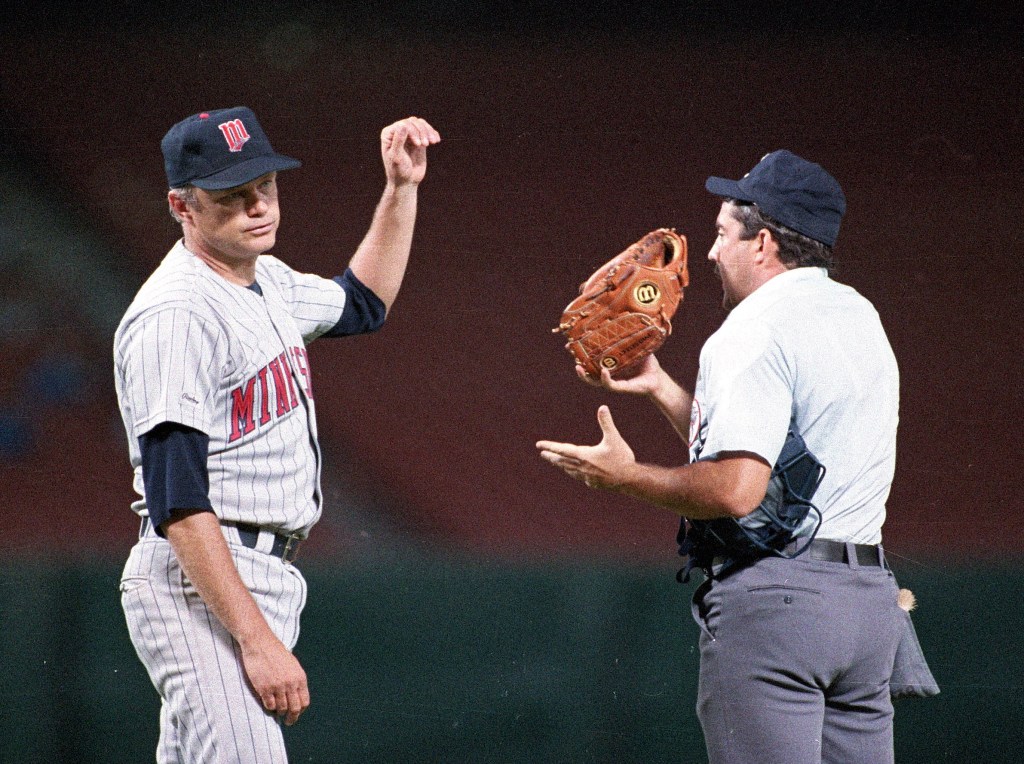If you ain’t cheatin’, you ain’t tryin’.
The credit for that old saying generally goes to NASCAR legend Richard Petty, though it just as easily could have come from Tom Brady, Gaylord Perry or pretty much any of the millions who have thrown, pitched or hit a ball since people started playing sports.
Blurring the line between legal and illegal, then figuring out how to get away with it, is as old as keeping score.
But what two New England Patriots employees did when they executed a plan to deflate footballs to Brady’s liking – according to an NFL-commissioned report by lawyer Ted Wells – was a direct violation of a well-defined rule about equipment that doesn’t leave room for shades of gray.
And while America waits to find out whether the penalty for Brady’s violation is unprecedented or just a slap on the wrist, the idea of taking liberties with playing equipment is hardly a new one.
A quick examination of the way bats, balls, rackets, clubs and other equipment has been manipulated over the years.
BASEBALL
WHAT: It’s too long a list to mention in a sport where almost anything can be adjusted to turn things to a player’s advantage. From spitballs (clearly illegal), to pine tar (illegal in some instances), to watered-down, speed-sapping fields (nothing really wrong with this one), baseball has a laundry list of items, all of which are changeable and anything but tamper-proof.
WHY: In the case of the most time-honored tradition, any substance placed on the ball or any scuff marks can change the weight and resistance and make it move in unpredictable ways. That’s why MLB works in the game balls with its own mud, mined only from a branch of the Delaware River in southern New Jersey, and acts swiftly if a pitcher is seen applying any other substance.
EXHIBIT A: For pure comedy, it was Twins knuckleballer Joe Niekro’s lame attempt in 1987 to casually toss away a piece of emery board from his back pocket – while standing on the pitcher’s mound in front of 33,983 fans. Niekro got ejected and was suspended for 10 days. He claimed he used the emery board to file his nails.
BASKETBALL
WHAT: A regulation NBA ball is supposed to be inflated to between 7.5 and 8.5 pounds per square inch. Traditionally, before a game starts, the referee will ask the captain of the home team to pick a ball, and often there’s an “X” conveniently marked on the ball the players have decided they like the best.
WHY: A team that likes to pass a lot and hopes the rebounds won’t ricochet too far off the rim might choose a less-inflated ball. There’s also the sense of feel. A ball that feels more worn can be easier to handle. Point guards who pass the ball more than others would usually like that.
EXHIBIT A: Around the time Deflategate hit, stories about Phil Jackson’s Knicks teams of the 1970s resurfaced. Those teams, starring Willis Reed, Bill Bradley, Walt Frazier and Dave DeBusschere, liked a deflated basketball. In the 1990s, Jackson told stories about how they used to carry needles around to get balls to their liking. He went on Twitter in the aftermath of Deflategate to explain that they never deflated the balls below league standards.
GOLF
WHAT: The sport’s ruling bodies publish a conforming list for the types of balls and clubs that can be used.
WHY: One recent rules change came in 2010 when the governing bodies banned square grooves in wedges because they helped players put more backspin on the ball, which can make it stop more quickly on the greens once it lands.
EXHIBIT A: An exception to that rule resulted from a lawsuit settlement that called for any club made before April 1, 1990, to take precedence over a rule change. At one tournament, Phil Mickelson decided to use some pre-1990 Ping clubs with the old grooves, and fellow competitor Scott McCarron accused Mickelson of cheating. McCarron apologized to Mickelson, who said he had made his point and wouldn’t be using the wedges again.
TENNIS
WHAT: Players aren’t supposed to purposely change the shape or “sharpness” of the balls. In most pro matches, new balls are put into play every nine games.
WHY: By fluffing up a ball, a player who doesn’t hit the ball as hard as his or her opponent could gain an advantage by slowing it down.
EXHIBIT A: In a match against Serena Williams in the 2013 Madrid Open, Spain’s Anabel Medina Garrigues was caught on camera rubbing tennis balls against the face of her racket, presumably in a bid to loosen the outer layer and make them fluffier. She won a set 6-0 but lost the match.
NASCAR
WHAT: A sport with an incredibly complex rulebook; sometimes the rules are rewritten during the season to catch up with the latest forms of rule bending.
WHY: The most subtle change in a car’s suspension, its height off the ground or the makeup of its tires can buy fractions of seconds in a sport where every inch counts.
Exhibit A: Maybe it’s the stuff that never got called and produced the occasional too-good-to-be-true result. How did Dale Earnhardt Jr., without the help of a drafting partner, overcome six cars down the stretch to win the first race at Daytona after his dad died there? And how was it that on July 4, 1984, with President Reagan in the stands, an aging Richard Petty was able to muster up the stuff to get his 200th (and final) win? Conspiracy theorists, start your engines.
Send questions/comments to the editors.




Success. Please wait for the page to reload. If the page does not reload within 5 seconds, please refresh the page.
Enter your email and password to access comments.
Hi, to comment on stories you must . This profile is in addition to your subscription and website login.
Already have a commenting profile? .
Invalid username/password.
Please check your email to confirm and complete your registration.
Only subscribers are eligible to post comments. Please subscribe or login first for digital access. Here’s why.
Use the form below to reset your password. When you've submitted your account email, we will send an email with a reset code.